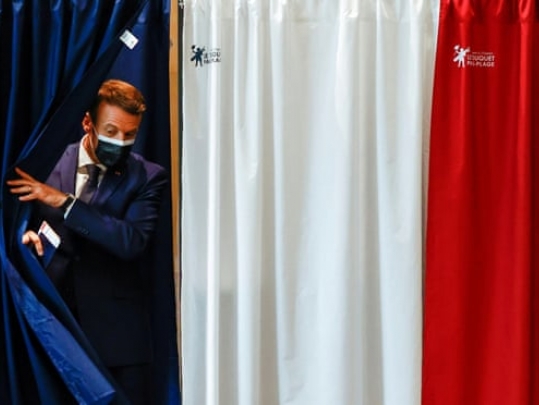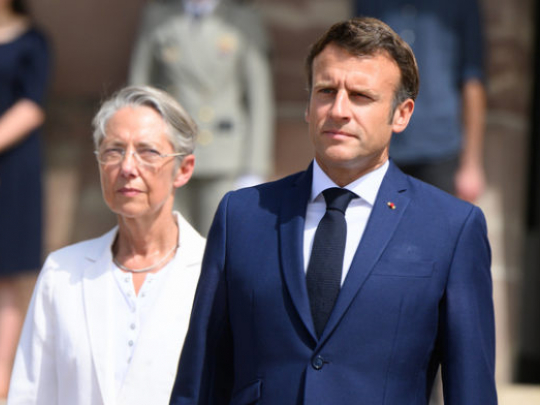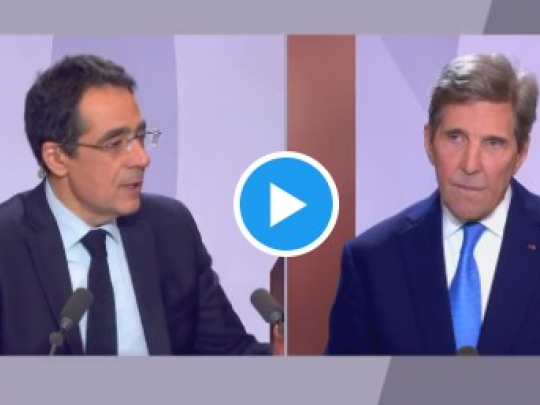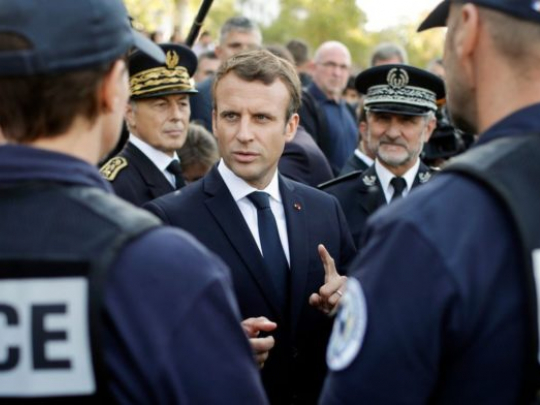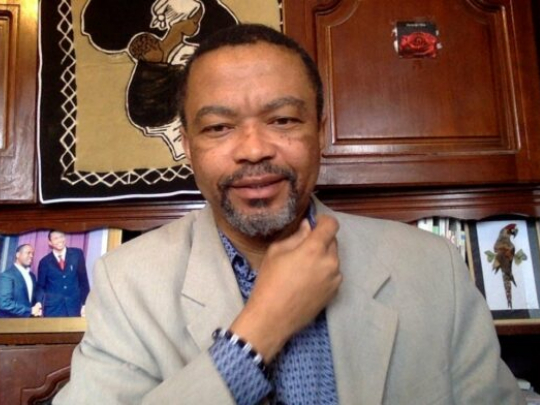Emmanuel Macron’s centrist party and Marine Le Pen’s far-right National Rally both failed to garner expected support in French regional elections that saw an unprecedented rate of abstention.
The president and his government failed to mobilise supporters, with an estimated 68% of voters shunning the polling stations – an unprecedented rate of abstention. If there was any consolation for the ruling party it was that exit polls suggested Le Pen’s far-right National Rally had failed to garner its expected support.
Early results indicated that the main winners were various centre-right parties, including the main opposition Les Républicains, who were supported by 29.3% of voters. National Rally polled 19.1% and the Socialist party 16.5%. Macron’s La République En Marche (LREM) was estimated to have won 10.9% of votes.
Asked about her party’s result, Aurore Bergé, an MP for LREM, said it was a “democratic slap in the face for us all” because of the low turnout but admitted her party had had a bad night. “I’m not going to come on here and rejoice at our score,” she told BFMTV.
In the Île de France, which includes Paris, the centre-right candidate Valérie Pécresse was in a strong position to retain control of the region.
In regional elections in 2015 just over 50% of French people failed to vote, a drop on just under 53.7% in 2010.
The vote was to elect new councils for France’s 13 mainland and one overseas regions as well as 96 departments. Regional councils have budgets running to billions of euros and are responsible for schools, transport and economic development. There were a total of 15,786 candidates standing for 4,108 seats. Winners are normally elected for a six-year term.
Le Pen did not run as a candidate but campaigned hard, particularly in rural areas where support for the far right remains high.
“Our voters didn’t turn out,” she said in her first comments after the vote from her stronghold of Henin-Beaumont in northern France. “I call on them to respond urgently.”
In the Paris region, voters had a choice of 11 lists – candidates present a list of proposed councillors – including Pécresse for a rightwing coalition, the former journalist Audrey Pulvar for the Socialists, Julien Bayou for Europe Ecology the Greens, and Clémentine Autin for the hard left Unbowed France.
This year’s campaign – with voting delayed by three months because of the pandemic – has been unique in that health measures meant there could be no door-to-door canvassing, which in any case is not a widespread French electoral tradition, and until recently outside rallies were constrained by health restrictions.
Parties were required to present electoral lists that listed male and female candidates consecutively on their lists. The number of candidates from each list who are elected depends on each party’s score.
Le Pen’s National Rally hopes to win control of a region to boost her decade-long effort to legitimise her party, formerly the Front National. The region thought to most likely to tip into far right hands is the National Rally’s traditional stronghold in the south-east Provence-Alpes-Côte-d’Azure region which covers Marseille, Saint-Tropez and Cannes. However, the party was strong in five other regions, including the Bourgogne-Franche-Comté, Centre-Val de Loire, Nouvelle-Aquitaine, Occitanie and Brittany.
In Provence-Alpes-Côte d’Azur, early estimations suggested the National Rally is jostling neck-a-neck with Les Républicains after the first-round vote.
Between Sunday’s results and next week’s second round, the focus will be on what alliances are made between parties. Candidates standing in the first round must obtain at least 10% of votes to pass into the second round, and a major question for the runoff is whether French voters will again band together to keep Le Pen’s party out of power as they have in the past.
There is general agreement that it is unwise to conflate regional results with predictions of what will happen in next year’s presidential election. Neither the mainstream right, Les Républicains, nor the mainstream left, the Socialists, have any credible presidential candidate at this stage.
Analysts said the abstention level threw any political predictions into doubt.
A recent poll for the Journal du Dimanche suggested that 49% of French people considered that any regional win would make National Rally a “danger for democracy”.
Most polls suggest the 2022 presidential race will be a second-round run-off between Macron and Le Pen.
The second round run-offs in the regional and department elections take place next Sunday.




